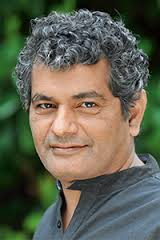KARACHI, Pakistan — Pakistan was recently mesmerized by a bottle of Scotch whisky. On Oct. 30, as hundreds of supporters of the opposition party Pakistan Tehreek-e-Insaf (P.T.I.) were making their way to the capital Islamabad, with the declared intent of shutting down the city, the police searched the car of a P.T.I. politician and discovered a bottle of Johnny Walker Double Black.
Most Pakistanis had not seen a bottle of whisky in the news in a long time. Although there’s no ban on showing alcohol in the media, the subject rarely comes up in TV news. But this one bottle of whisky, waved around by a policeman, was broadcast on a loop. It became an emblem of the opposition’s immorality.
The politician claimed it contained honey. Yet later that evening, on a current affairs TV show, he put a sobering question to the other guests, “Which one of you doesn’t drink?” Complete silence.
If they said yes, they’d be implicating themselves. If they said no, nobody would believe them. For Muslims in Pakistan, drinking alcohol is prohibited and talking about it is taboo. Drinking and denying it is the oldest cocktail in the country.
It wasn’t always like this. The country was founded in 1947 by Mohammed Ali Jinnah, who was known to indulge in the occasional drink. Alcohol shops and bars were banned in 1977 by Prime Minister Zulfikar Ali Bhutto, a person who had publicly proclaimed, “Yes, I do drink alcohol, but at least I don’t drink the blood of the poor.”
That year, facing protests over an allegedly rigged election that his party had won, Mr. Bhutto decided to declare prohibition. He probably believed that he and his comrades would continue to enjoy their Scotch in private. He was hanged two years later.
Since those days, Pakistan’s rich have continued to enjoy their liquor at home and members’ clubs, but the less privileged have been persecuted and flogged, and are at risk of being imprisoned, for possessing and consuming alcohol.
It’s true that most people in Pakistan don’t drink because they are Muslim. But many more don’t drink because they are Muslim and poor. Nobody abstains from drinking because it’s prohibited by law.
When alcohol was banned by Mr. Bhutto, an exception was made for non-Muslims. They would be issued licenses and allotted a quota. Non-Muslim visiting foreigners would be able to order a drink in their hotel rooms, but the hotels would make them fill out a form saying they needed the alcohol for medicinal purposes.
In the province of Sindh, where I live, licensed shops, usually called wine stores, have operated even since prohibition. The stores are supposed to sell only to non-Muslims, but they don’t discriminate. Owners have to pay off the police, though, and any dispute can result in the shops having to close down.
The laws can be cruel and absurd. Last summer, the local police in Karachi banned liquor stores from keeping freezers, in order to stop consumers from buying a cold beer. Apparently chilled beer was a threat to our faith and to peace, but warm beer was just warm beer.
In late October, a High Court judge ordered the closure of all these stores after accepting a petition that said alcohol is prohibited not only in Islam but in Christianity and Hinduism, too. This ban means that only those who can afford imported liquor will keep buying from a flourishing network of bootleggers.
Others will have to buy one of the many versions of moonshine brewed all over the country, which routinely blind and kill consumers. Two years ago, when liquor stores were shut in Sindh over the Eid holiday, more than 25 people died after drinking home-brew. Survivors report that if the stuff doesn’t kill you or blind you, it isn’t that bad.
Members of Parliament and law enforcers and industrialists and bureaucrats and young professionals and even some religious scholars can drink with impunity. A taxi driver trying to score a beer on the go risks a jail term or losing his eyesight to moonshine.
It’s a law-and-order issue, you see. The rich drink in their own homes and frolic or puke on their own lawns, but the assumption is that if the poor get drunk in public spaces, they’ll make a nuisance. Which is why those who can afford fine scotches can also afford to give everyone else lectures about our religious duties. It seems that those who suck the blood of poor people want to make sure it’s not tainted with cheap alcohol.
No wonder Pakistanis go to any lengths to ensure they’re not seen drinking, even when they smell like a barrel of liquor. I once had dinner with a 74-year-old grandfather who sipped from his spiked bottle of cola but worried that one of the children at the table would get their Pepsis mixed up with his.
I’ve tried to interview my neighborhood liquor-shop owner, but he has discouraged me. There are enough problems in Pakistan, why don’t you write about them? But is this Bombay Sapphire knockoff you’re selling any good? How would I know? he said, I have never had a drop. Not even for medicinal purposes.
Mohammed Hanif is the author of the novels “A Case of Exploding Mangoes” and “Our Lady of Alice Bhatti,” and the librettist for the opera “Bhutto.”

